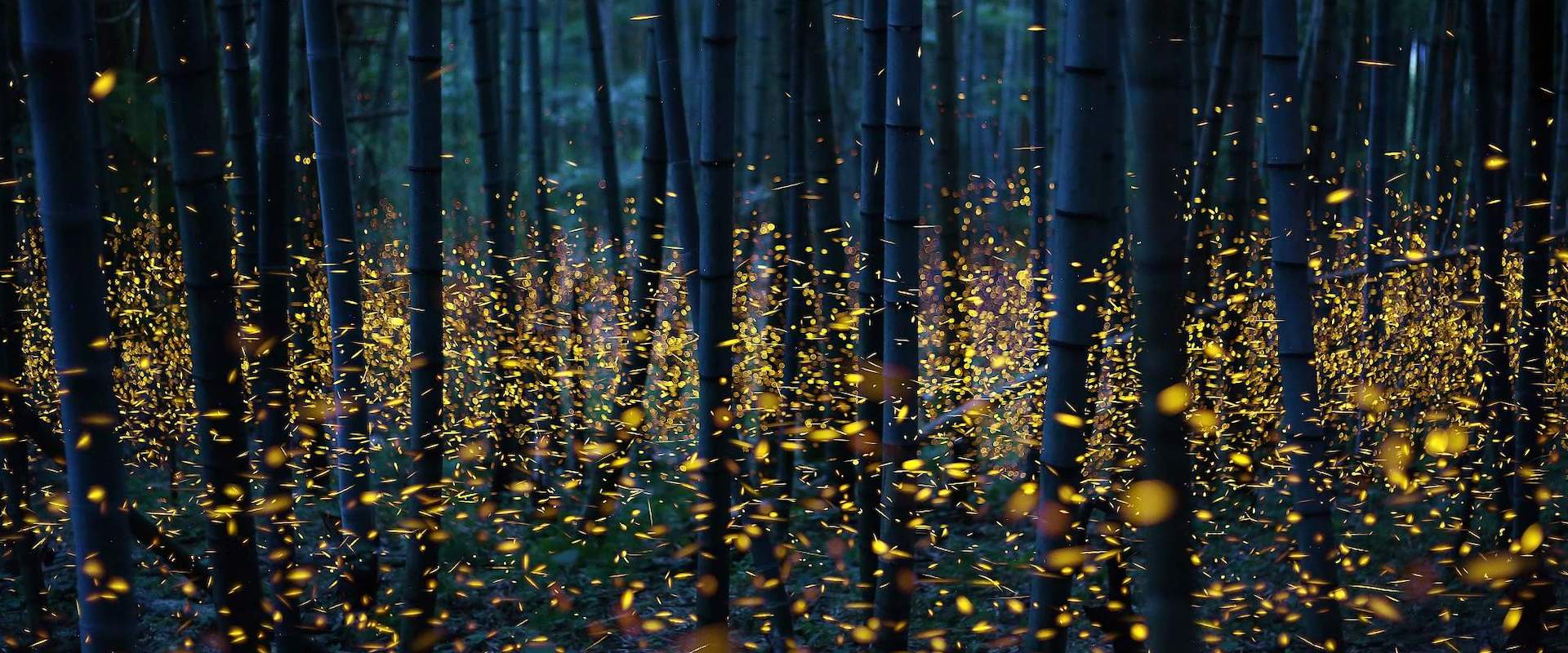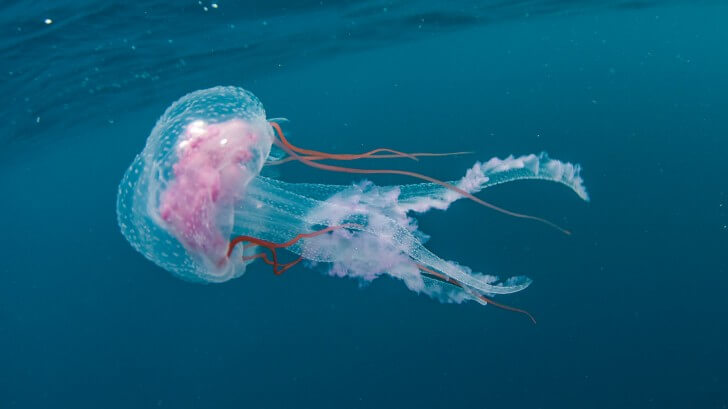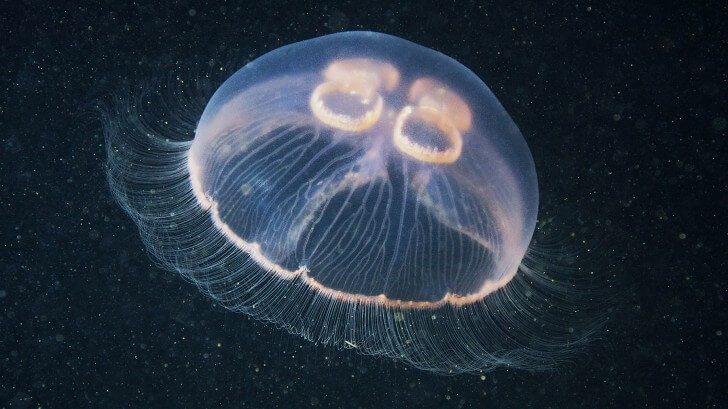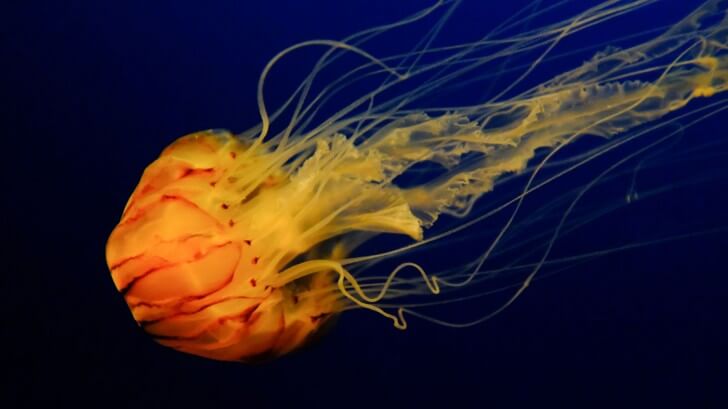

BBC Earth Podcast
Close your eyes and open your ears
Intimate stories and surprising truths about nature, science and the human experience in a podcast the size of the planet.
Oceans
Humans have always been fascinated by the idea of cheating death.
We’ve looked to everything from religion, the planets, cryogenics and even the mythical fountain of youth.
While we were searching the heavens, science and all the corners of the Earth, the secret of immortality may have been floating in the ocean this whole time. In the form of a jellyfish.
When we think of a jellyfish, what most of us is picturing is the “Medusa stage”, the second stage of jellyfish life. They spend this part of their lives as opaque drifting balloons with trailing tentacles.

Jellyfish start their lives as larva, tiny cigar shaped creatures that spiral through the water, looking for a rock or something handy to attach itself to. Once firmly in place, the larva metamorphoses into a polyp, rather like a tiny sea anemone. Colonies of these polyps are created as the polyp clones itself which means a colony can cover an entire boat dock in a matter of days. Some types of polyp form huge shrub-like bushes. When the conditions are right, these polyps bloom in vast numbers and when they bloom, what buds from the polyp are baby jellyfish.
If the start of jellyfish life wasn’t extraordinary enough, its death is where things get really exciting. When the medusa the immortal jellyfish (Turritopsis dohrnii) dies, it sinks to the ocean floor and begins to decay. Amazingly, its cells then reaggregate, not into a new medusa, but into polyps, and from these polyps emerge new jellyfish. The jellyfish has skipped to an earlier life stage to begin again.
“This was a real mind blower for all of us,” says Dr Lisa-ann Gershwin, a jellyfish researcher based in Tasmania and director of the Marine Stinger Advisory Service. “It's one of the most amazing discoveries of our time.”
This was a real mind blower for all of us... It's one of the most amazing discoveries of our time”

It’s not just the immortal jellyfish that can rise from its own ashes. In 2011, a marine biology student in China kept a moon jellyfish (aurelia aurita) in a tank. When it died, he kept the body in another tank. Three months later, a new tiny polyp was growing out the top of the moon jellyfish. This regeneration process has now been found in around five species of jellyfish.
So aside from eternal life, what’s the benefit for the jellyfish itself? Why do it? Well, it means when it becomes weakened either by age or illness, or it faces danger, it can call up its incredible survival mechanism and regenerate.
Once the process begins, the bell of the jellyfish (the generally rounder “parachute” part at the top) and its tentacles begin to deteriorate. It turns back into a polyp, attaches itself to a surface and begins to grow into a jellyfish all over again, and it can do it over and over.

Part of what actually happens to the jellyfish in this process is called cellular transdifferentiation. Its cells change from type to another, producing a completely different body plan.
Although Dr Gershwin says she can’t see any link currently between jellyfish immortality and our own, it doesn’t mean some sort of genetic splicing would not be possible in the future. Who knows? A few jelly genes and we could all be like Doctor Who, regenerating whenever we wearied of ourselves.
Featured image by Scott Portelli | Getty


Intimate stories and surprising truths about nature, science and the human experience in a podcast the size of the planet.